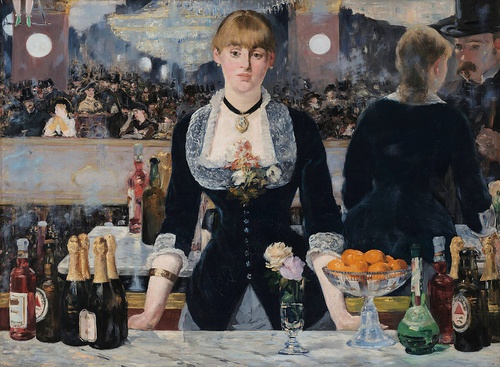
-
- Sept. 12, 2024 / 11 a.m. to noon
- Add to mobile calendar
- Add to Google calendar
When Edouard Manet began to study painting in 1850, Paris' familiar, broad, tree-lined streets didn’t yet exist, and the life of the city was not a subject artists explored. Young artists could expect to succeed only through the official Academy exhibitions known as Salons, whose conservative juries favored biblical and mythological themes and a polished technique. Within twenty-five years, however, both Paris and painting had new looks. Renovations had opened the wide avenues and parks we know today, and painting was transformed when artists abandoned the transparent glazes and blended brushstrokes of the past and turned their attention to new techniques and to life around them. Contemporary urban subjects and a bold style, which offered paint on the canvas as something to be admired in itself, gave their art a strong, new sense of the present.
While several artists had already begun to challenge the stale conventions of the Academy, it was Manet whose succès de scandale made him a leader of the avant-garde. His embrace of what Charles Baudelaire termed the "heroism of modern life" and his bold manner with paint inspired the future impressionists, though Manet never exhibited with them.
In this docent-led talk we'll learn about what the public considered so scandalous in Manet’s works and why, today, no artist is arguably as responsible for setting modern art in motion.
Join us LIVE for our semi-monthly docent-led virtual talk inspired by the Timken Collection of European old masters, American art, and Russian icons. Every 2nd and 4th Thursday of each month at 11:00 AM Pacific, we'll be bringing you these virtual art history discussions for FREE, no reservation required. You can join us live on Zoom or Facebook.

Note that you will be muted upon entry and that this talk is being recorded as well as live-streamed. Please save all questions for the end.

✥ ✥ ✥ ✥ ✥
You can find all of our previous Virtual Talks on our Facebook Page (@timkenmuseum). If you would like to support the continuation of our free tours and education programming, please consider donating to the Timken Museum of Art at https://www.timkenmuseum.org/join-support/your-giving/.